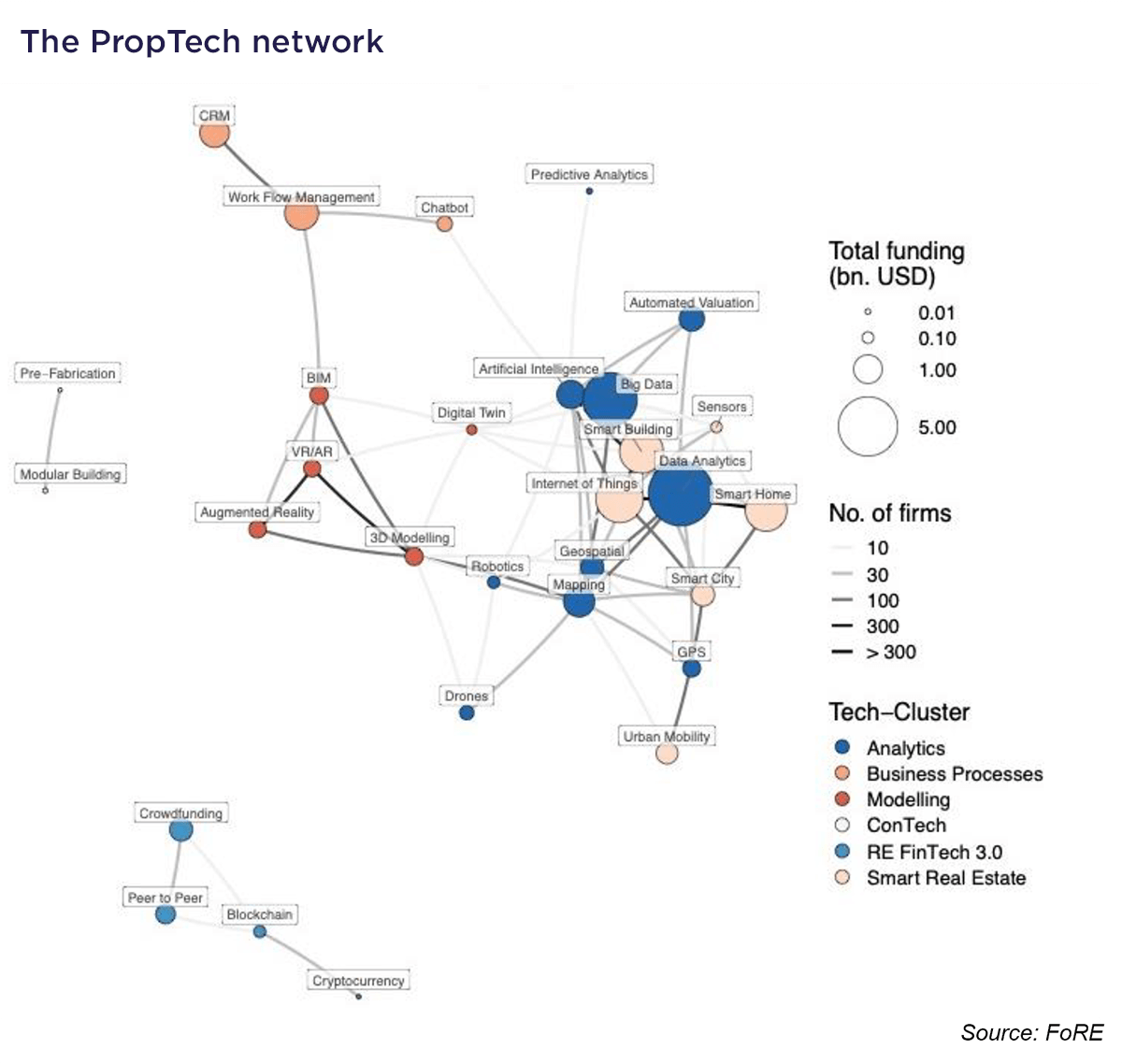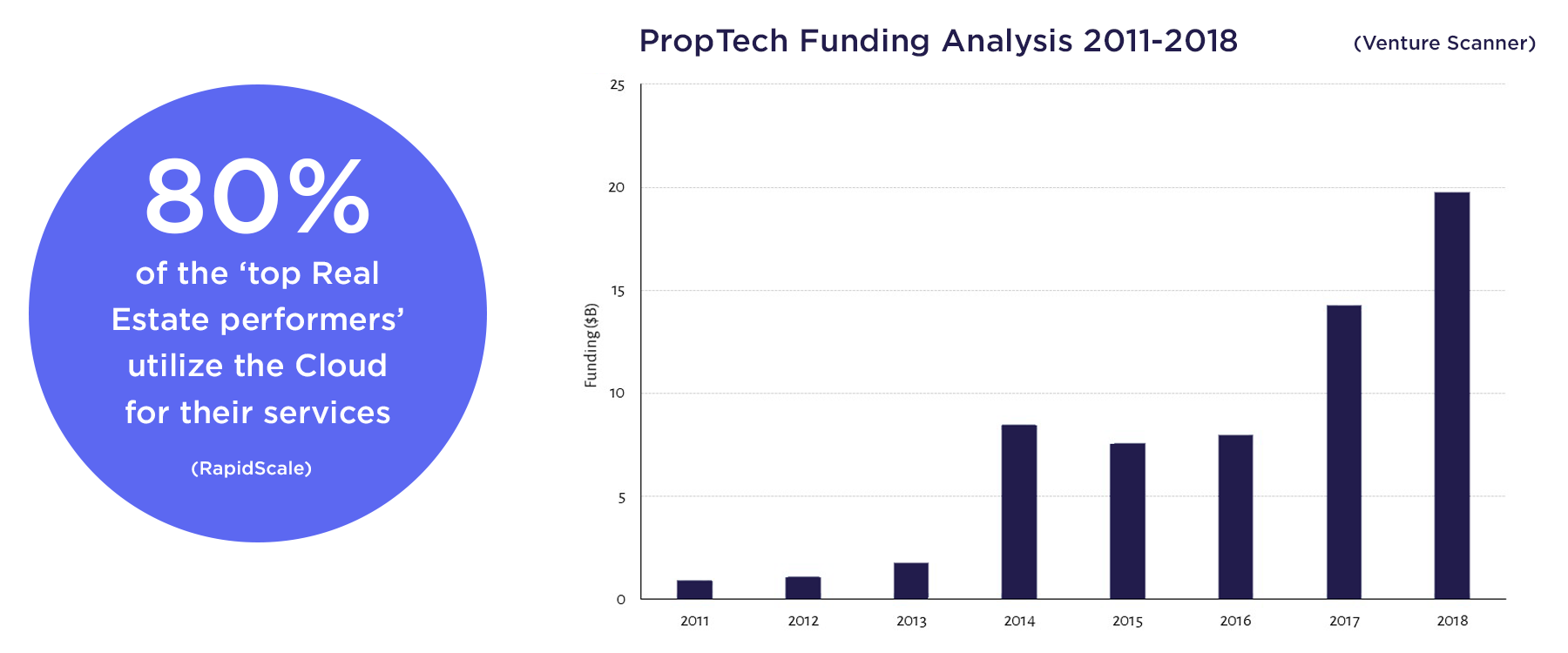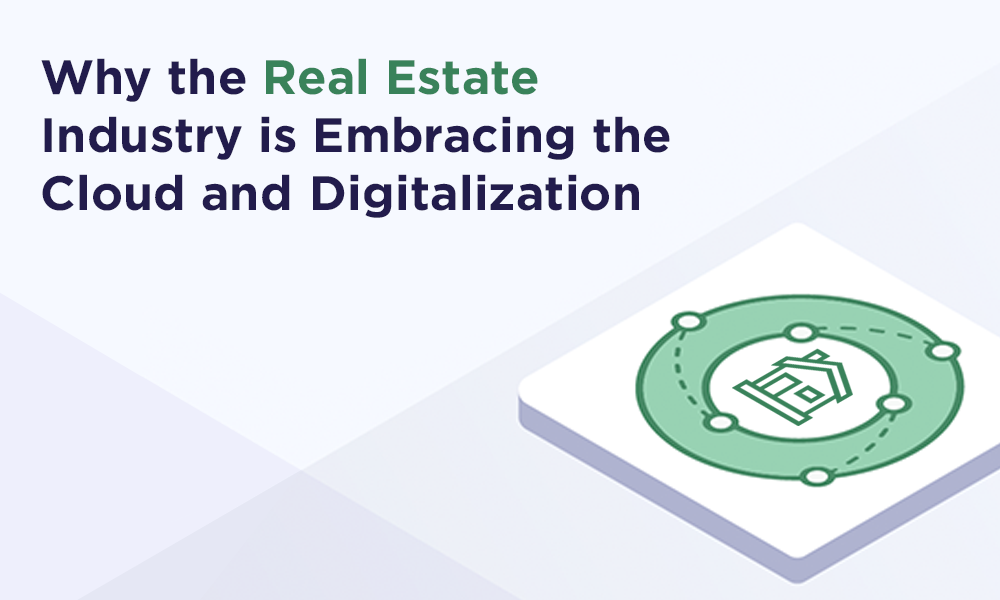The real estate industry has historically been quite conservative when it comes to adopting change – this is certainly no less the case when it comes to digital transformation. Nonetheless, there are several outliers among the pack of ‘old-schoolers’. In leveraging cloud-based software and platforms, these groups have set themselves apart from the herd, demonstrating the unrivalled power of the Cloud and the unlimited scope of business potential for those firms that take the leap to digitally transform.
As Lorne Burns, Audit Partner and National Industry Leader for KPMG’s Building, Construction and Real Estate practice, has neatly summarized, “If you’re not already embracing digital technology and leveraging data, you run the risk of either losing market share or experiencing revenue income erosion or both.”
Framed in such a way, it is hard to avoid the niggling feeling that sticking rigidly to the status quo would be much like riding through a storm in a punctured rubber dinghy as opposed to a submarine.
The Digital Leap
If you are yet to embark on your digital transformation journey, then the next step for your organization could not be more obvious. Particularly, given the current challenges firms are facing due to the global pandemic, many organizations have already adopted cloud computing solutions to stay ahead of the curve and ensure their long-term viability – including those in real estate.
PropTech, underpinned by a range of technologies (including cloud computing), is playing a big part in driving the ongoing digitalization of the real estate industry. Notably, it is disrupting the process of management all the way through to the buying, selling and renting of various property, by utilizing a broad array of technologies:
- AI and Machine Learning
- Big Data Analytics
- APIs
- BIM Models
- Digital Workflows
- Augmented and Virtual Reality
- Blockchain
- Distributed Ledgers
- CRM

For instance, Paperless Pipeline, a transaction management software, has transformed how organizations manage their business. With one real estate company based in the state of Georgia, Paperless Pipeline’s software helped streamline the firm’s workflow and enhance the mobility of the agent base, significantly contributing to revenue growth.
Fundamentally however, digitalization must not merely extract the maximum value or profit from real estate, it must cater to those driving wholesale changes across various industries – the consumers. According to Alex Edds, Director of Innovation at JLL UK, “PropTech is a reflection of the realization that the consumer experience needs to be at the very heart of real estate. Where the end-user was once forgotten when it came to decision-making, PropTech is turning this on its head.”
How is Real Estate Leveraging the Cloud?

The sharp growth in PropTech funding should stand as a warning to the industry: those who are reluctant to utilize the Cloud and PropTech will be left behind as organizations increasingly adopt innovative solutions to streamline processes and better serve the end-user. So, how are such solutions being utilized?
With the BIM market size predicted to nearly double by 2025, from $4.5 billion (2020) to $8.8 billion, ($3 billion of which will be accounted for by the North American BIM market alone), it would seem a good place to start in analyzing how the real estate industry is leveraging cloud-based software. Indeed, according to a survey conducted by Altus in 2019, BIM was one of the three technologies identified as being most likely to cause ‘maximum disruption’.
Autodesk BIM 360, a cloud-based software, which can be deployed on AWS’ Cloud for your additional computing power and data storage needs, can be accessed anywhere, at any time, by a range of professionals across the industry, enhancing the potential for collaboration. On its own, the software provides a remarkable level of insight for organizations involved in real estate management by enabling the building or simulation of a digital model of a particular property and its characteristics. Combined with BIM technology, VR and AR can not only enhance construction design but also benefit consumers in providing virtual tours of properties, broadening the potential range of clients that organizations could attract.
However, given that organizations (according to University of Oxford Research) continue to rely on spreadsheets for various tasks, there is still room for growth in the realm of data. Indeed, on the other end of the spectrum, (in relation to the funding of various technologies), data analytics is one area that has been identified as a core part of how the real estate industry is leveraging the Cloud. Redfin, a residential real estate company, utilizes a range of AWS services – from Amazon S3 to Amazon EC2 instances – to run its analytics and effectively manage sizeable loads of property data.
And what of the future for real estate? For instance, could we see AI and machine learning take on a more integral role within the sector? According to Andy Barkett, CTO of Rex Real Estate, “Robots [software, hardware, etc] are good at two classes of things: things that are dumb and things that are hard… Think about the process of buying a house; there’s a lot of very low value added things that occur during that process and right now the traditional real estate broker does all of them. They do things like scheduling appointments – that’s something that an AI can do.”
That being said, as Andy notes, AI does have some way to go before it can take on more sophisticated tasks, like reading through a homeowner's contract and insurance policy, and answering questions like, “is the water leaking from my dishwasher covered, or can I add a second story?” Nonetheless, the future looks incredibly promising for cloud-based PropTech within the industry.
How is Cloud Technology Benefitting Real Estate?
In illustrating the power of cloud computing and what it currently offers for a broad array of industries, (beyond simply the real estate sector), we can effectively summarize the benefits with the following:
1) Enhanced scalability
The one feature that is universally acclaimed when it comes to the Cloud is its scalability – allowing organizations to tap into resources on-demand. In the context of real estate, by utilizing the Cloud, a firm could increase their computing power to handle fluctuations, for instance, a sudden swelling in tenant payments.
2) Cost-efficiency
Utilizing the cloud can help real estate firms cut costs, as your cloud provider handles the maintenance and management of infrastructure, servers, upgrades, and so on and so forth. This means that firms can focus on putting resources toward other processes and software, that may benefit the growth of the business, instead of funding in-house IT teams.
For example, Yong Huang, Director of Big Data Analytics at Redfin, explained that by taking advantage of Apache Spark (executed on AWS’ EC2), the real estate firm was able to cut costs on spot instances by 90%.
3) Improved relationships with clients and tenants
According to a report conducted by the National Multifamily Housing Council, the No2 reason why residents choose to move is due to dissatisfaction with property management. Therefore, it makes a great deal of sense for the industry to adopt cloud technology to enhance relationships with customers.
An appropriate (and, importantly, mobile) cloud-based CRM system can not only ensure more fluent interactions between real estate organizations and clients anywhere, at any time, but also allow for the simpler sharing of relevant customer data to drive effective analytics and lead generation.
4) Go paperless
The real estate industry will be particularly aware of the frustrations surrounding the use of physical documentation (not least of all in relation to managing relationships with customers). By storing documents on the Cloud, your organization can cut storage costs, enhance the accessibility of documentation and ultimately streamline your workflows.
Cloud-hosted document management can then enhance interactions between your organization and clients by ensuring that relevant information can be exchanged swiftly, without the added hassle of requiring physical transfers of documentation.
Is your organization ready to embrace the Cloud? With VUSE’s expertise in the real estate industry and software engineering solutions, we can ensure that your digital transformation journey is a success. Get in contact with VUSE today!


